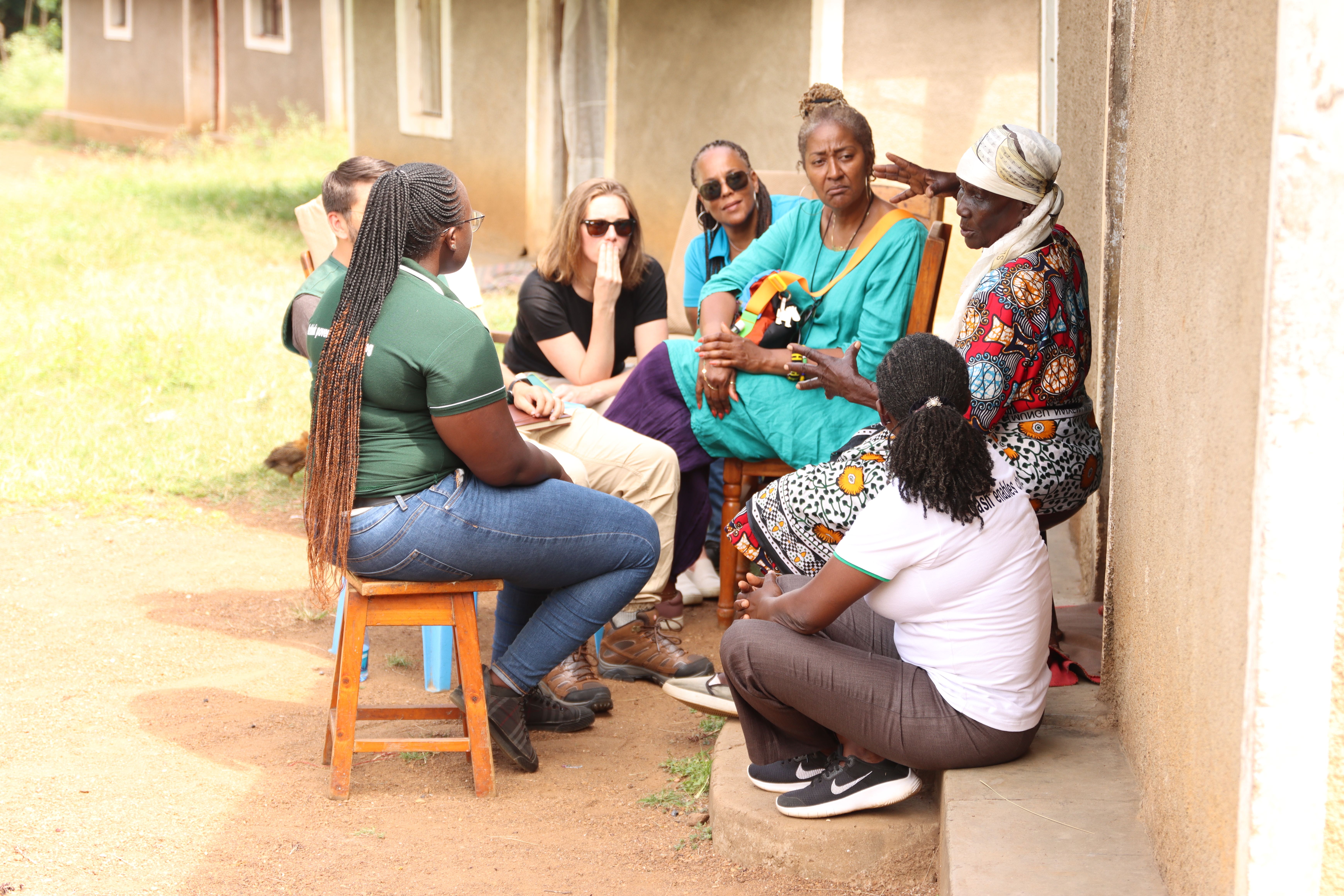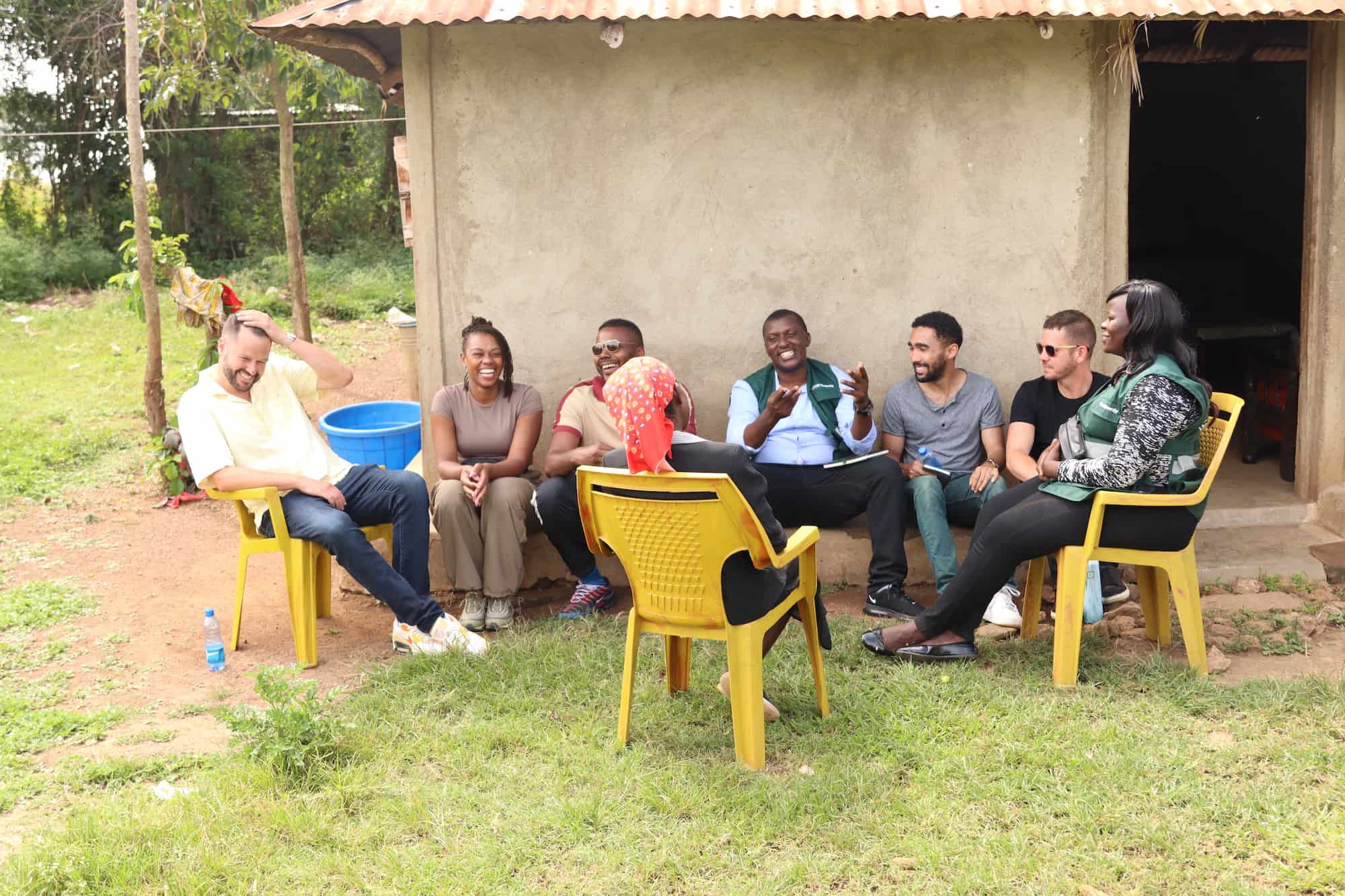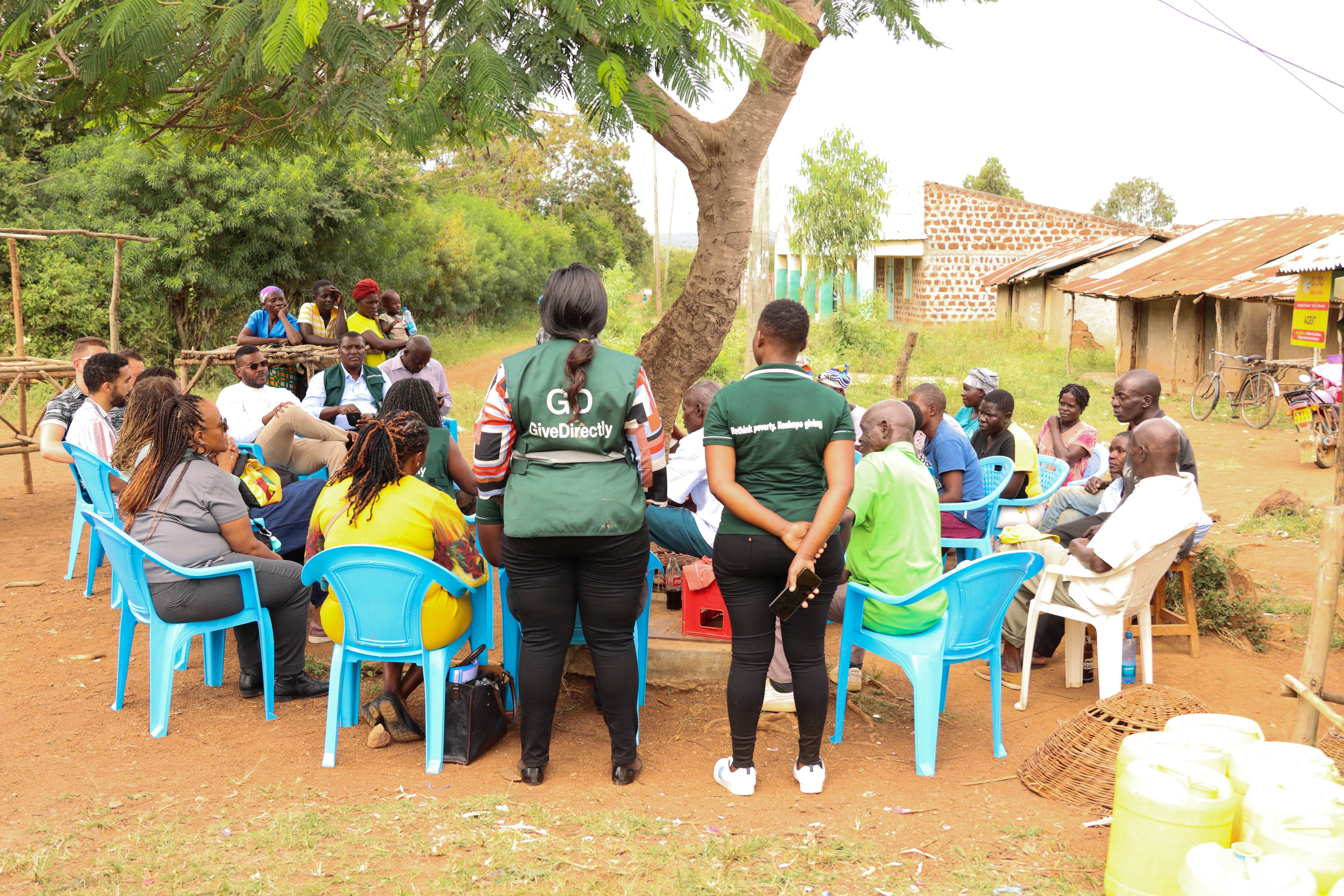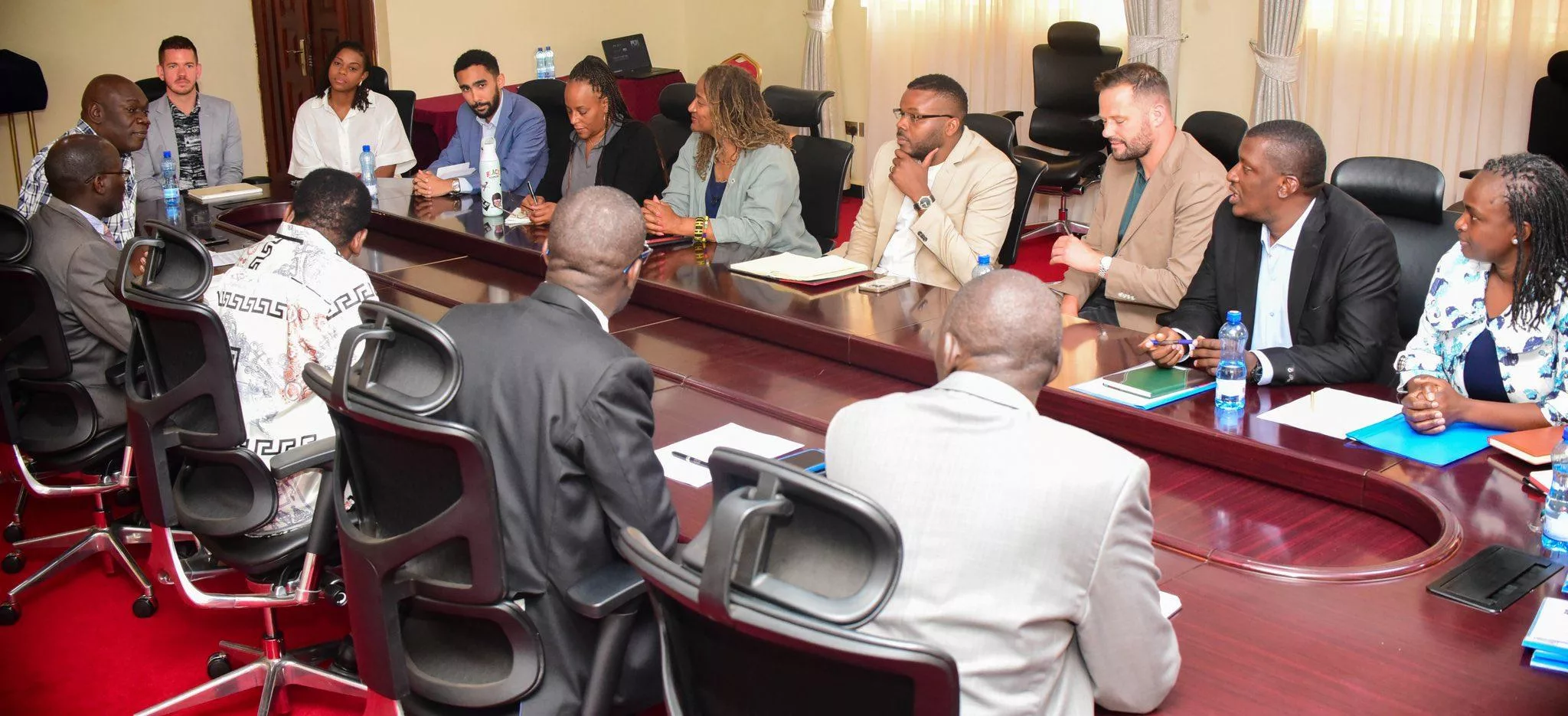The following is a guest post from Michael Tubbs, the founder of Mayors for a Guaranteed Income and the former Mayor of Stockton, about his recent visit to GiveDirectly cash aid programs in Kenya.
I recently had the privilege of traveling to Kenya with GiveDirectly to see firsthand some of the great work they are doing and meet many of the local people they are working with.
What I witnessed was similar to what we’ve seen in the dozens of guaranteed income pilots my organization, Mayors for a Guaranteed Income, has helped to implement from Stockton to St. Paul, Atlanta to Tacoma, Santa Fe to Birmingham, and more: When you trust people in poverty with a little bit of money—no strings attached—they will put that money to work bettering their lives and creating wealth. Cash aid programs that lead with trust both affirm the dignity of the individuals and communities they serve and combat the indignities caused by poverty.
In Siaya County, which is home to the paternal side of President Obama’s family, we met with about dozens of GiveDirectly’s Universal Basic Income (UBI) program participants in the Magawa village. These folks are about halfway through the 12-year UBI program that provides them with the equivalent of $23 US dollars per month.
The entrepreneurial spirit of participants was striking and similar to one I witnessed when I met with small business owners and aspiring entrepreneurs in Ontario, California. It seemed like everyone wanted to start a business, likely because it is one of the few available pathways out of poverty. Some of the ways participants put their money to use included: purchasing a motorcycle and renting it out or using it for transportation to school; buying a cow, breeding it, and growing a herd for additional income; and paying for their child’s school tuition.
People also invested in infrastructure improvements that will continue to pay dividends. For example, many were able to switch from thatched roofs to metal ones for their homes; or invest in solar panels which provide more consistent energy. They used their guaranteed income to secure financing for these projects.
Investments in communal activities were also a priority. The village has a youth soccer club—The Magawa 11 Stars—with both girls and boys teams. Program participants used their money to purchase equipment and uniforms, and pay their dues. But even more important was that people recognized this as an investment in the village youth—a way to provide healthy, fun, and structured activity with important life lessons about teamwork, commitment, determination, and the like.
Many also utilized the funds to support one another through giving circles, where groups of 12 people put a portion of their earnings in a collective pot every month. Once a year, each participant receives the funds—essentially a form of social insurance. When we asked questions like who does the accounting? How do you decide who gets the money each month? What if someone doesn’t pay? These questions were all non-issues—everyone pays and the system works, and the relationships foster joy and energy among the people. Trust and commitment are the bedrock values underlying the effort, just as they are with guaranteed income programs.
And in both villages and in meetings with national and county policymakers, cash aid was also discussed as a way to help communities deal with the growing impact of climate change. We learned of a community in Siaya County that had dealt with catastrophic and unprecedented flooding, and how cash would be the best tool for building climate resilience in the near-term and beyond.
When asked what GiveDirectly could do to improve the program, people said nothing other than make it so the program isn’t finite. And for too many in deep poverty, the stakes of these funds are life or death.
For me, it is frustrating that we continue to see such amazing results of what people are able to achieve with just a little assistance, and to know that if the effort were sustained the return on investment would only grow, while also saving money on the costs of poverty in terms of health and lost productivity. And yet we have to keep proving the concept over and over and over again. Why is that? In Kenya, I caught a glimpse. Just as in the US there is no shortage of naysayers: “You can’t trust those people with the money.” The distrust certainly wasn’t as racialized as it often is the U.S., but was perhaps driven by class, language, or geography.
But just as many of us in the US have looked at the data and concluded that we need to move beyond pilots to a permanent program, I think the question in Kenya now needs to be how can we get more people more money?
Whether at home or abroad, we need to recognize that dignity is a human right—and a right that poverty directly violates. But by trusting people to do right by their families and communities—because we know they will—we can ensure that right is secured.




